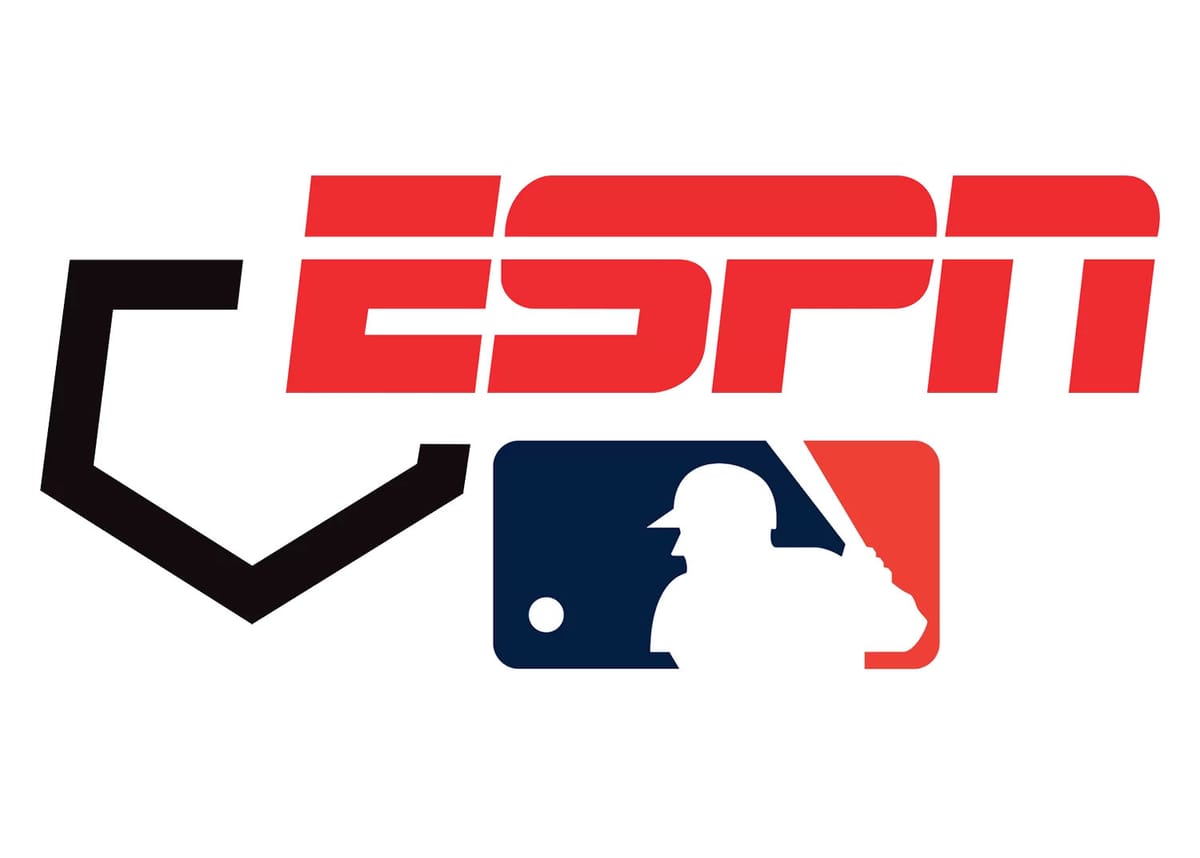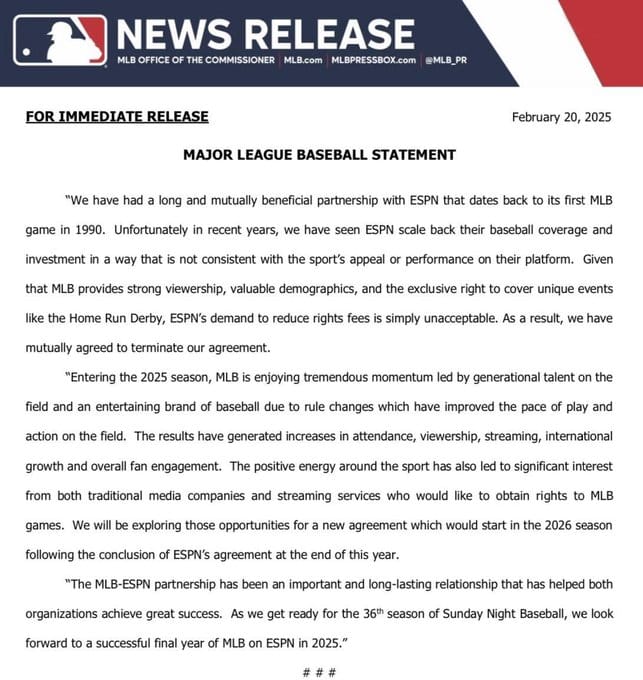ESPN Drops MLB After 35 Years – What This Means for Baseball’s Future
After a 35-year partnership, ESPN and Major League Baseball have officially parted ways, leaving MLB in search of a new broadcasting home. What does this mean for baseball fans and the future of the sport's media rights?

It’s the end of an era—ESPN and Major League Baseball are officially parting ways. After a 35-year relationship that shaped how generations of fans consumed America’s pastime, the two entities have decided to split, with ESPN opting out of its current TV deal nine days before the deadline. But what does this really mean for the future of baseball broadcasting?
This announcement didn’t come as a surprise to many. Signs of ESPN distancing itself from MLB were visible for years. 'Baseball Tonight' was shut down back in 2017, and MLB coverage on ESPN's popular talk shows like First Take has been virtually nonexistent. Even ESPN’s live game inventory was significantly reduced, dropping from 90 games to just 30 per season in 2021.

The Financial Side of the Split
ESPN’s decision to exit the deal early saves them a staggering $1.65 billion over the next three years—a move that makes financial sense given its declining cable subscriber base. On the other hand, MLB regains control over valuable programming, including the exclusive 'Sunday Night Baseball' window, the Home Run Derby, and a Wild Card playoff round. However, finding a replacement partner willing to pay a similar amount won’t be easy.
In ESPN’s press release, they stated: "We are grateful for our long-standing relationship with Major League Baseball... In making this decision, we applied the same discipline and fiscal responsibility that has built ESPN's industry-leading live events portfolio." Yet, behind the scenes, negotiations failed to lead to a new deal, as MLB was unwilling to accept a reduced rights fee.
MLB Hits Back
Commissioner Rob Manfred didn’t hold back in a letter to MLB owners, criticizing ESPN for offering "minimal coverage" of baseball over the past few years. He noted ESPN’s declining subscriber numbers, emphasizing that it was no longer beneficial for MLB to remain on a "shrinking platform." The message was clear—MLB wants more control and exposure, and ESPN wasn’t providing it.
For fans who felt ESPN had neglected baseball for years, this split might feel like a win. However, the reality is far less optimistic. Without ESPN, MLB loses its presence on one of sports media’s biggest platforms. Just look at what happened to the NHL when it left ESPN in 2005—they became an afterthought in mainstream sports discussions until they re-signed with the network in 2021.
Where Does MLB Go From Here?
The biggest question now is: Who will replace ESPN? Finding a partner willing to pay $550 million annually for a limited package of games seems unlikely. Possible contenders include NBC (which already airs sports under its Peacock platform), Fox (which would need to increase budgets), or perhaps a major streaming service like Amazon or Apple TV.
Apple TV is an interesting possibility. The company has already made bold moves into sports, securing exclusive rights for Major League Soccer globally. If Apple applied the same strategy to MLB, it could create a one-stop, subscription-based hub for everything baseball. However, such a shift would bring challenges—particularly for fans used to accessing games through traditional broadcasting.
The Road to 2028
MLB’s long-term focus appears to be 2028, when its deals with Fox and Turner all expire. By then, many teams will have their local media rights available, potentially allowing MLB to package national and local games together into one lucrative media deal. This could be the league’s opportunity to sell exclusive rights to a streaming giant like Apple or Amazon, providing fans with a blackout-free, all-inclusive baseball experience.
While this all sounds promising, it’s a gamble. MLB’s popularity has waned in recent years, and losing ESPN’s marketing power could further isolate the sport from casual sports fans. But if handled correctly, MLB could control its future and establish a media rights model more aligned with how fans consume sports in the digital age.
Final Thoughts
For now, fans will have one more season of MLB on ESPN before the split becomes official in 2026. Whether this decision proves to be a smart financial choice for baseball or a major misstep remains to be seen.
One thing is certain—Sunday Night Baseball as we know it is over. So, let’s pour one out for a longtime tradition, and brace ourselves for baseball’s next big media shake-up.